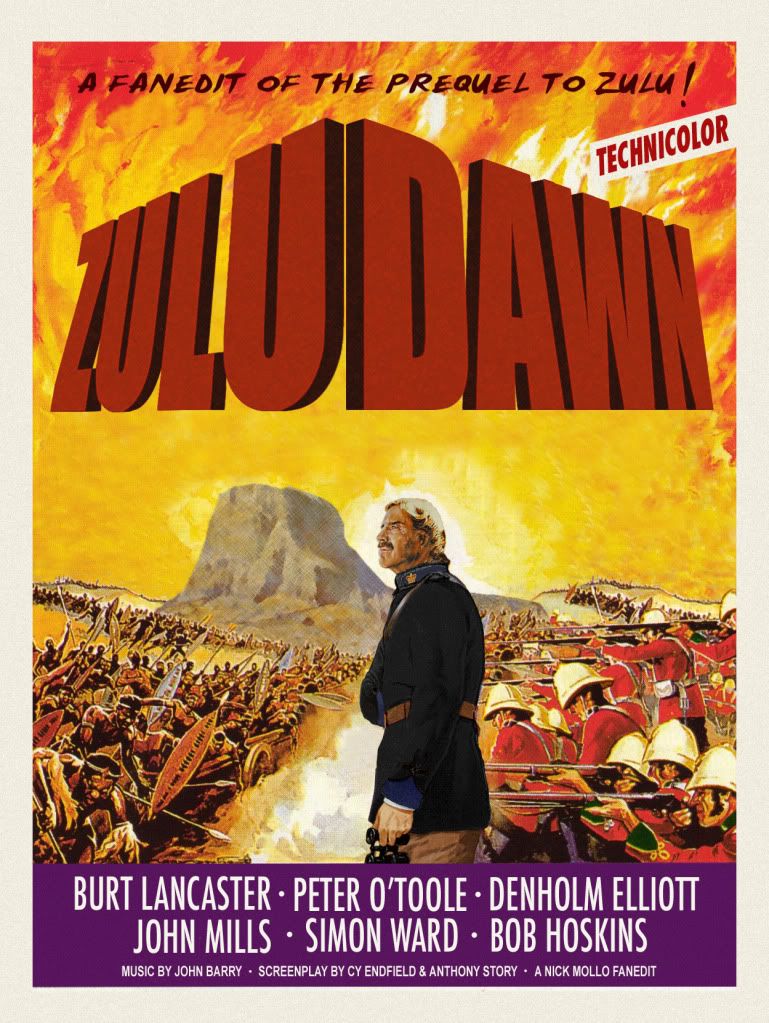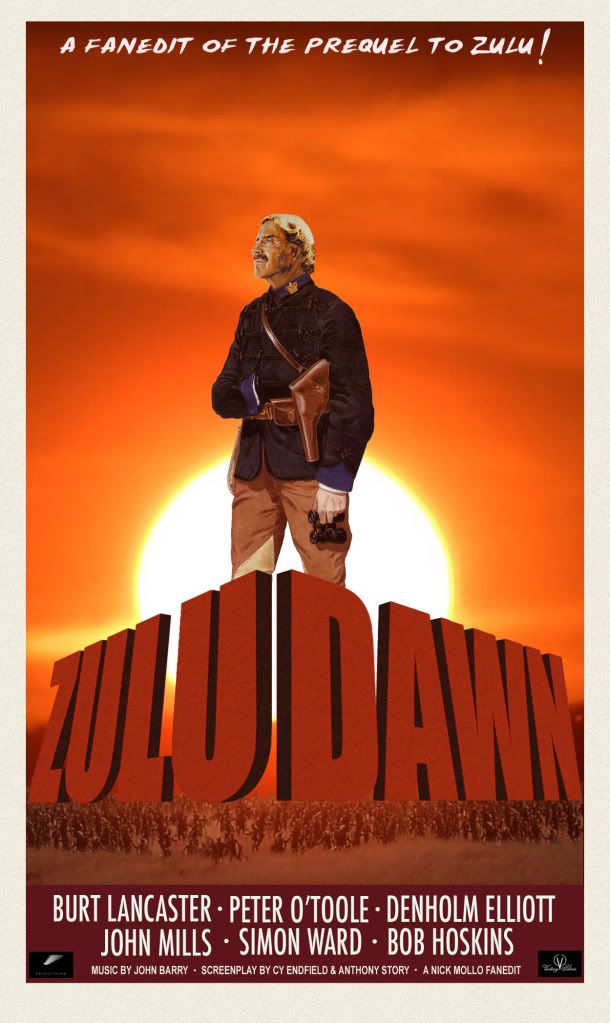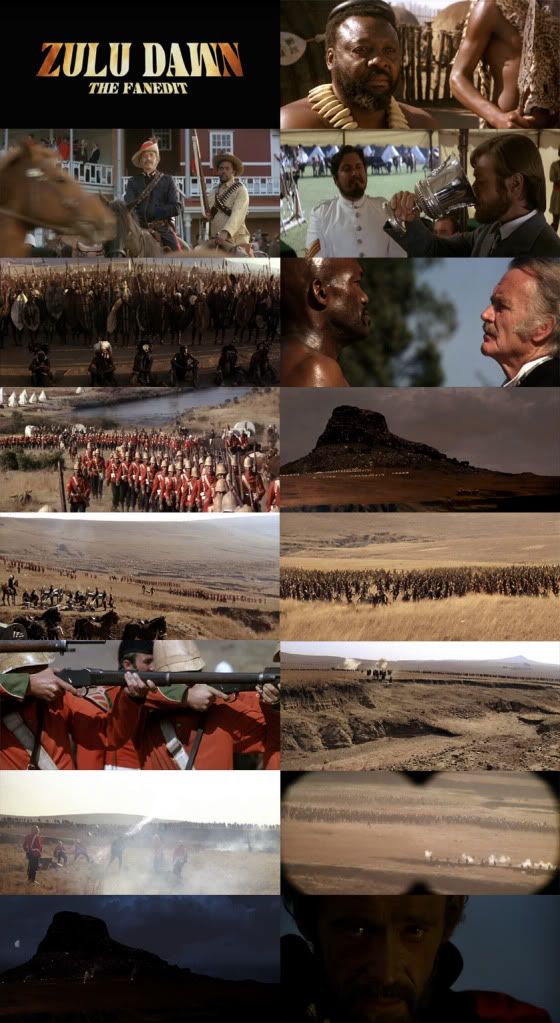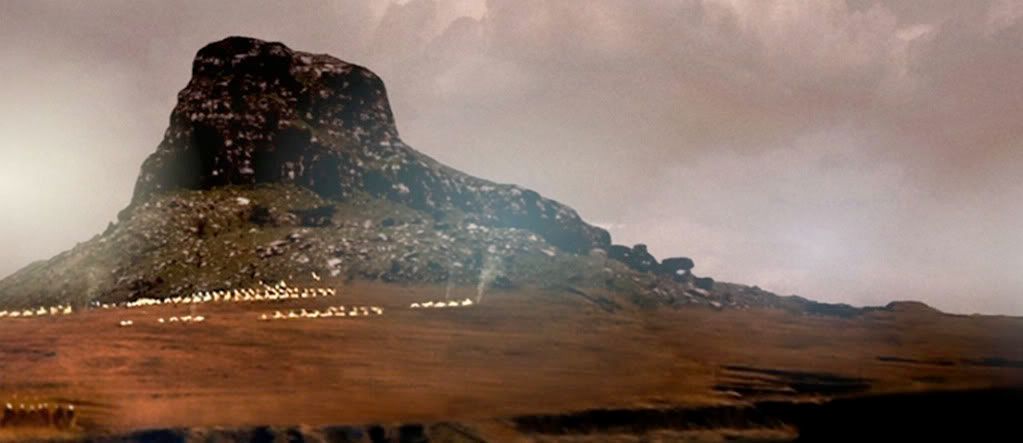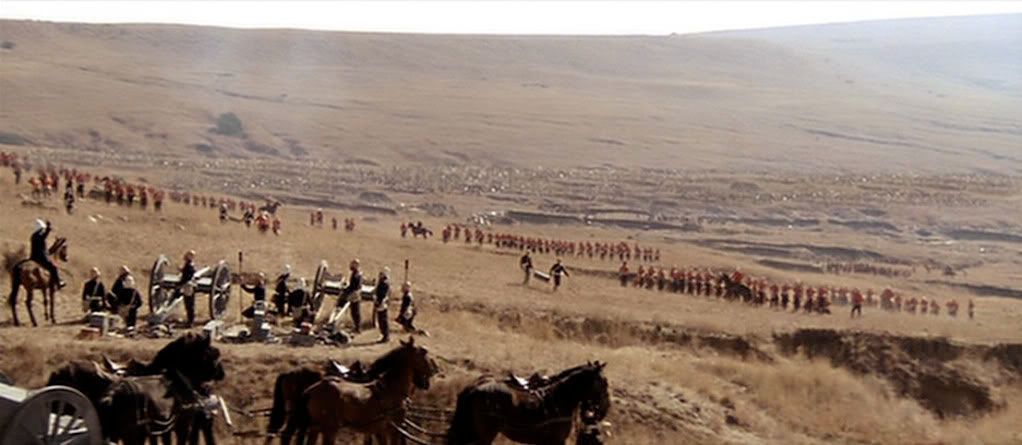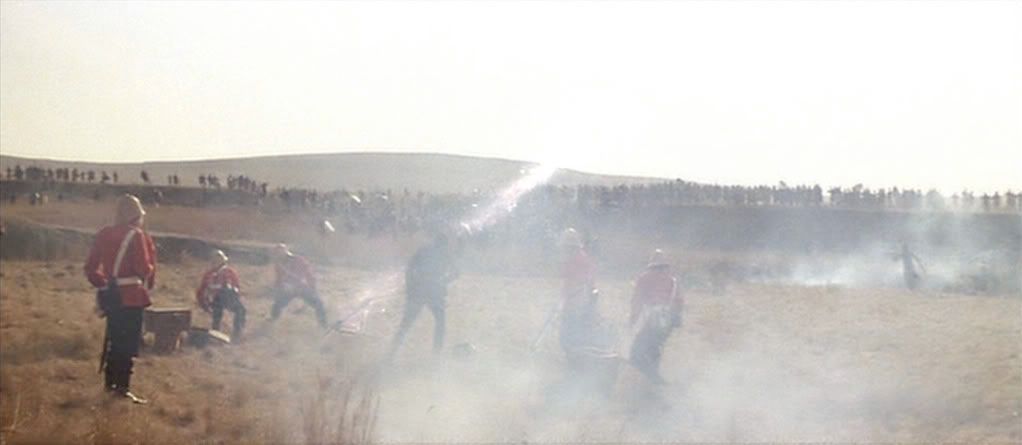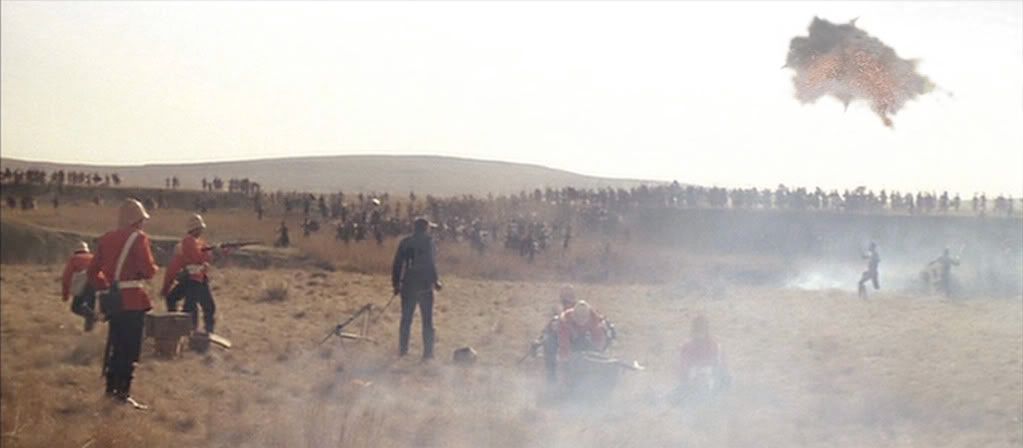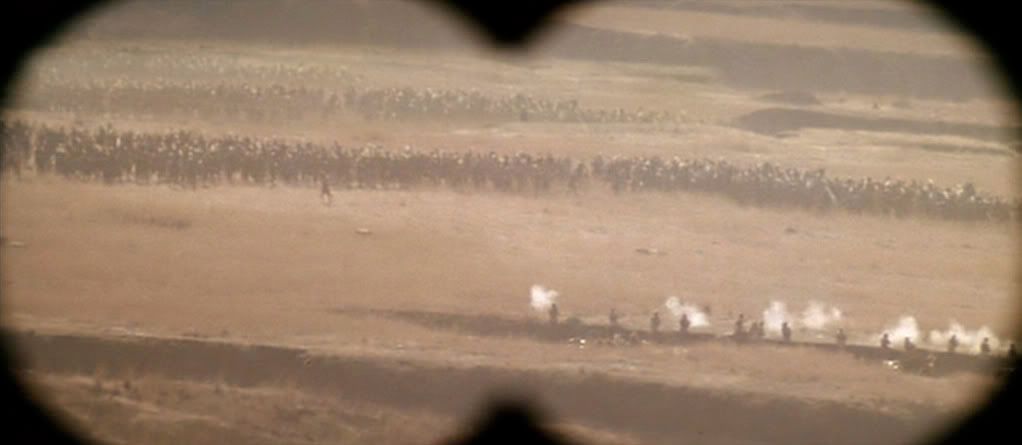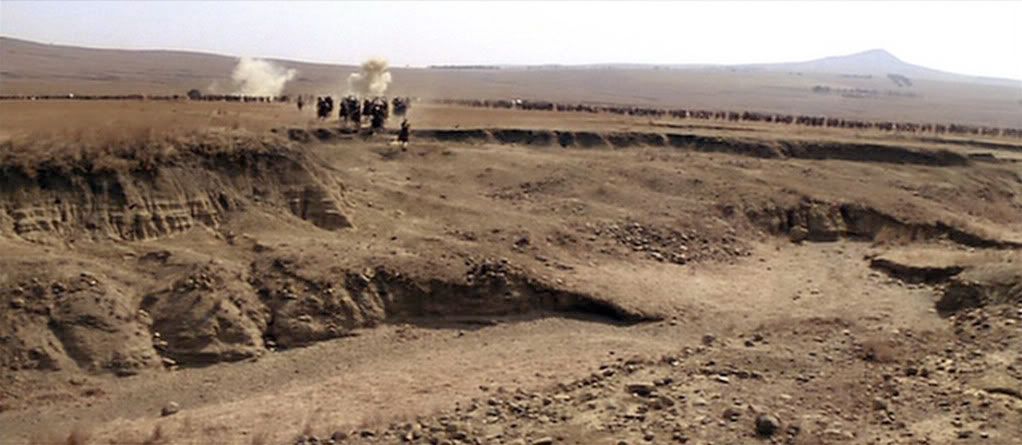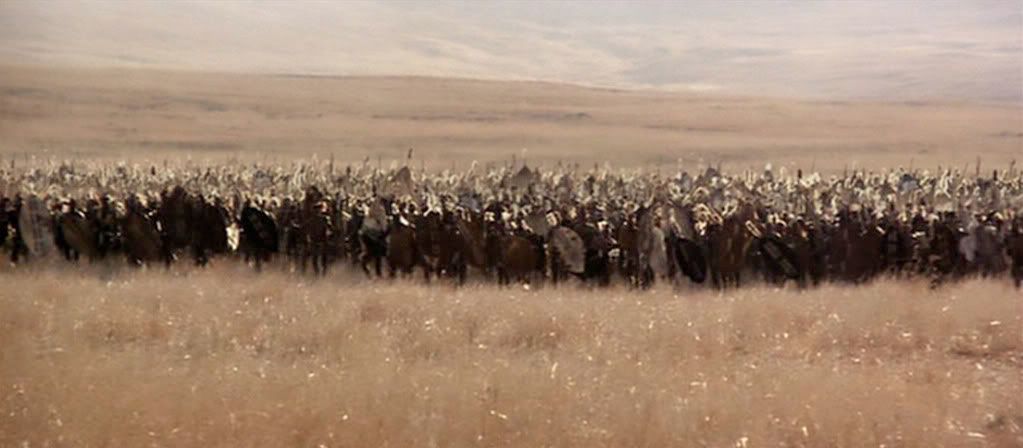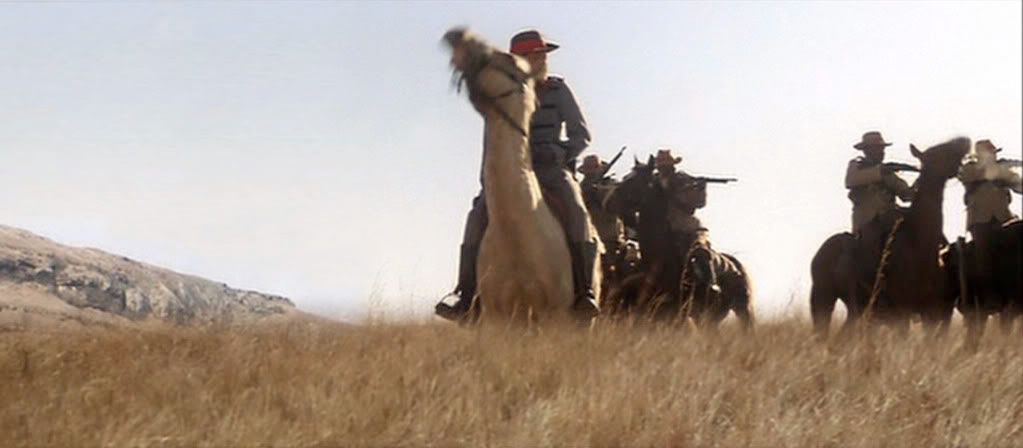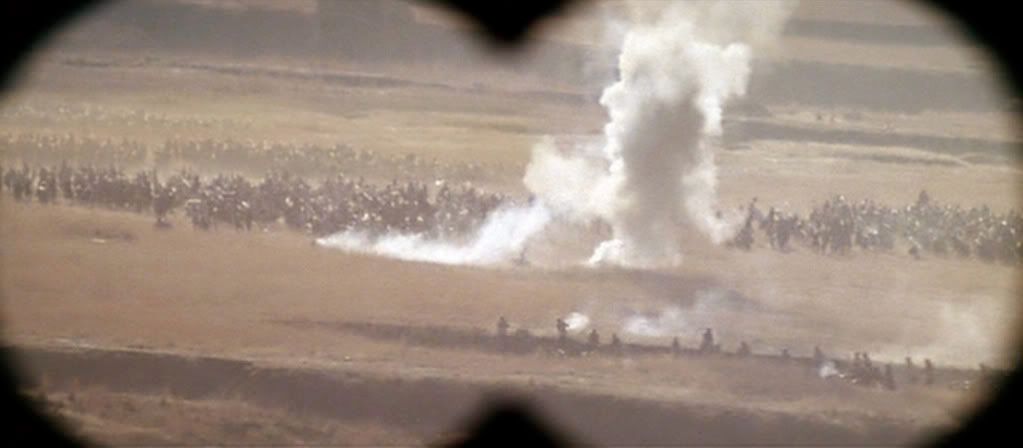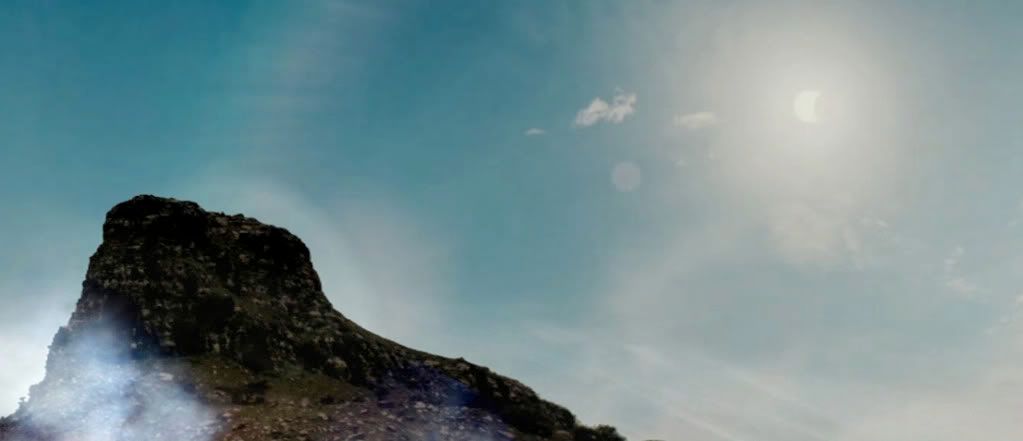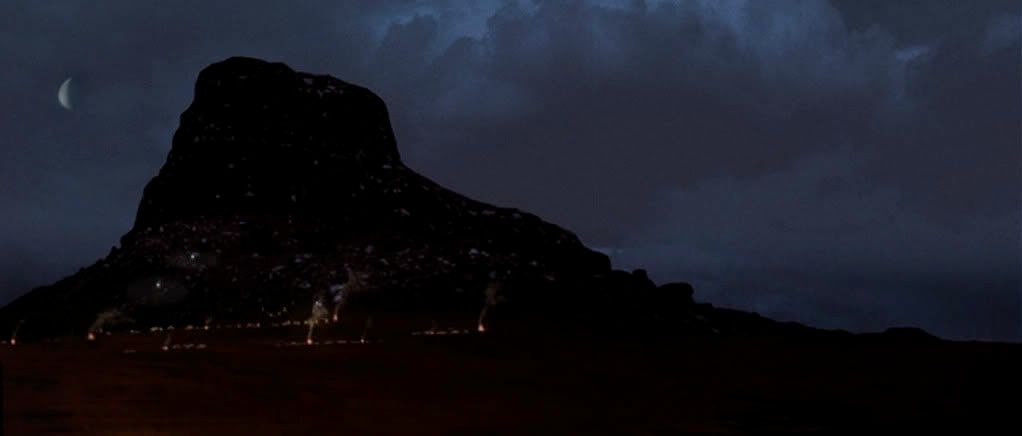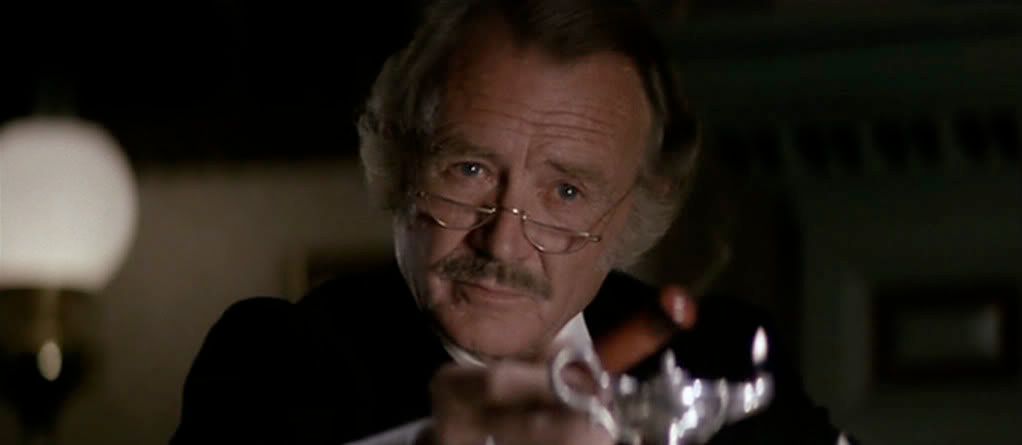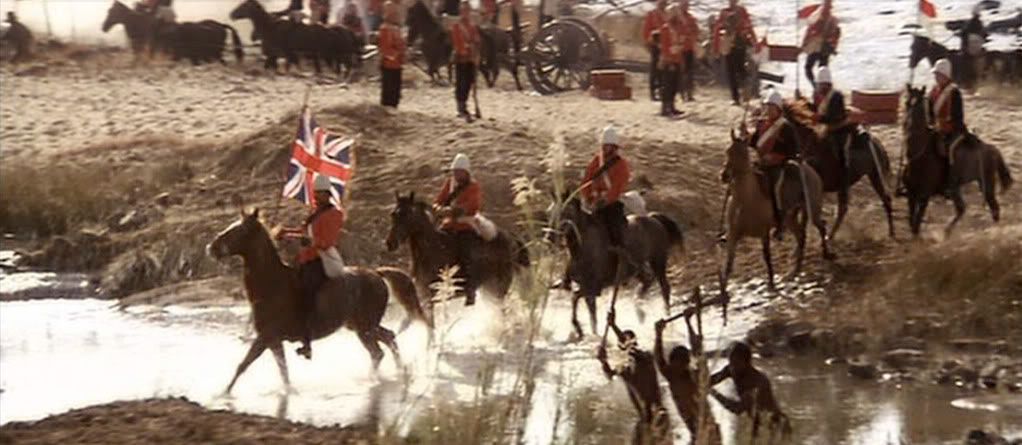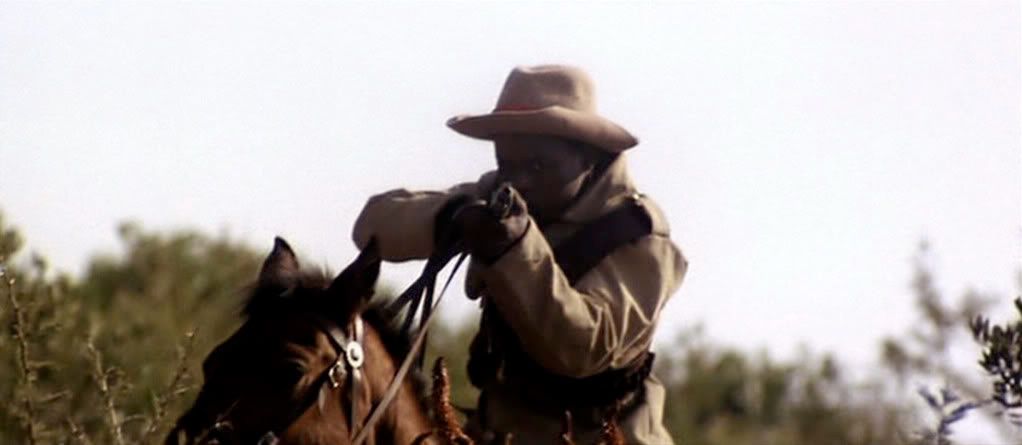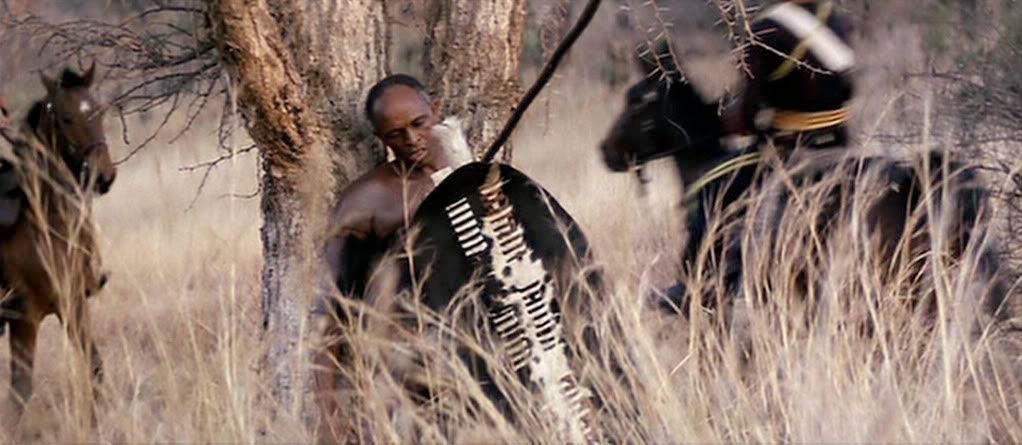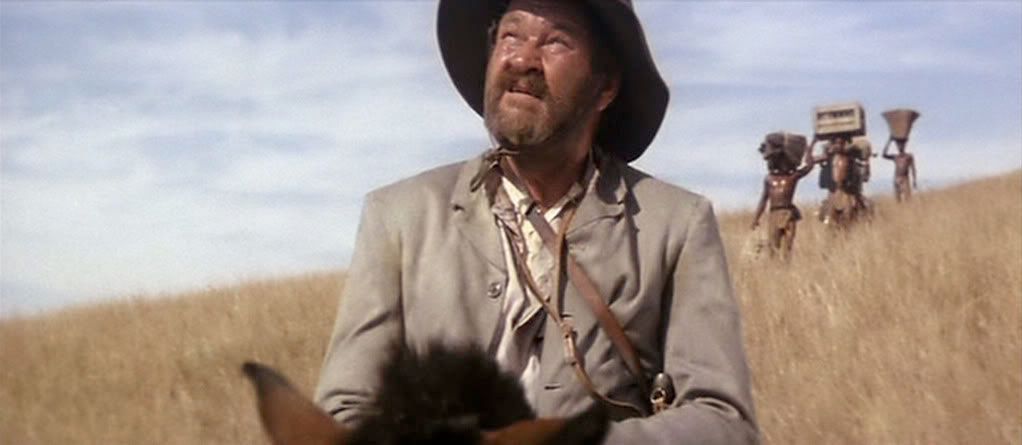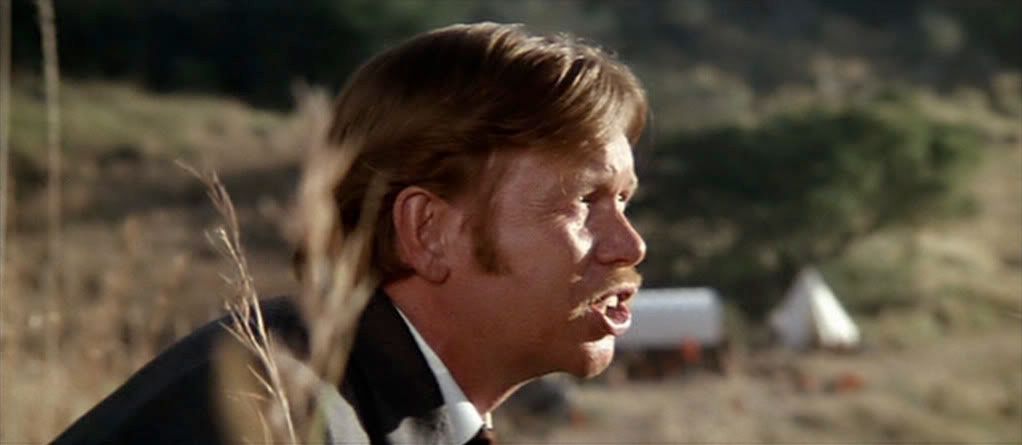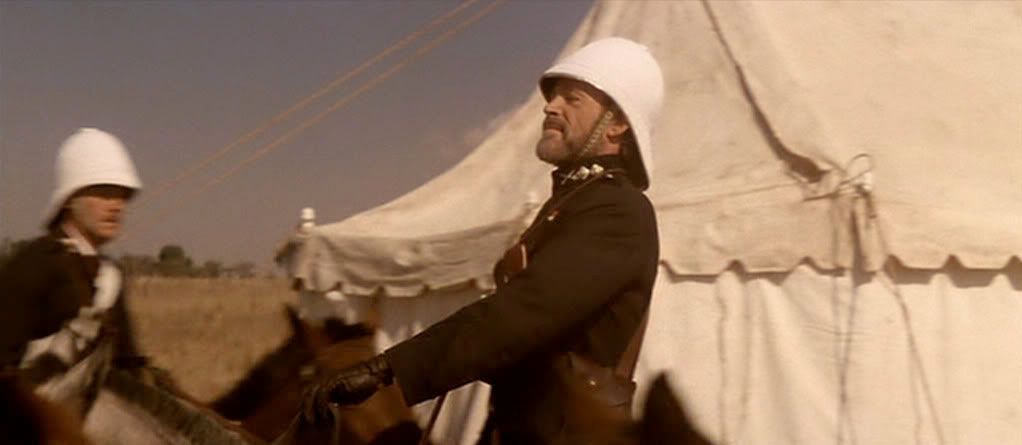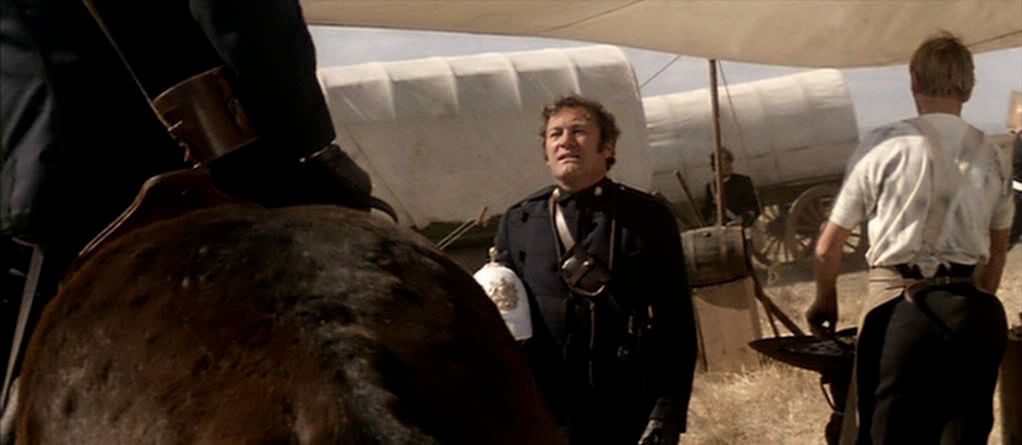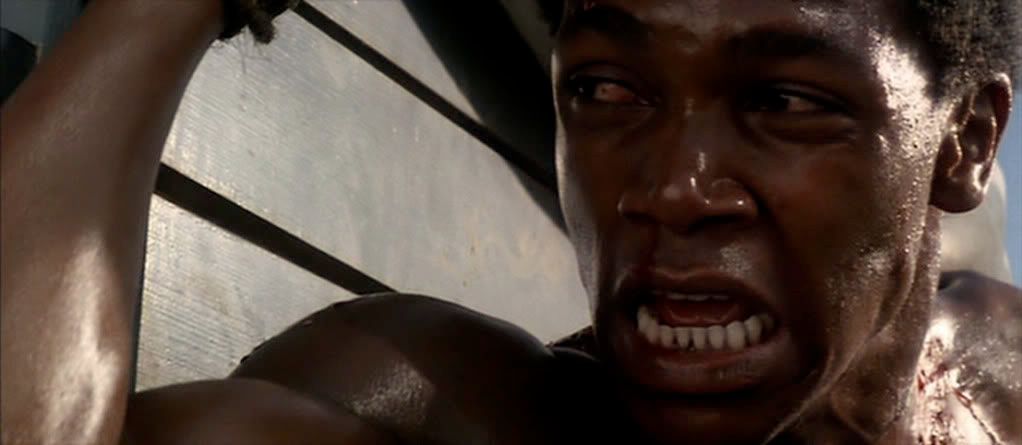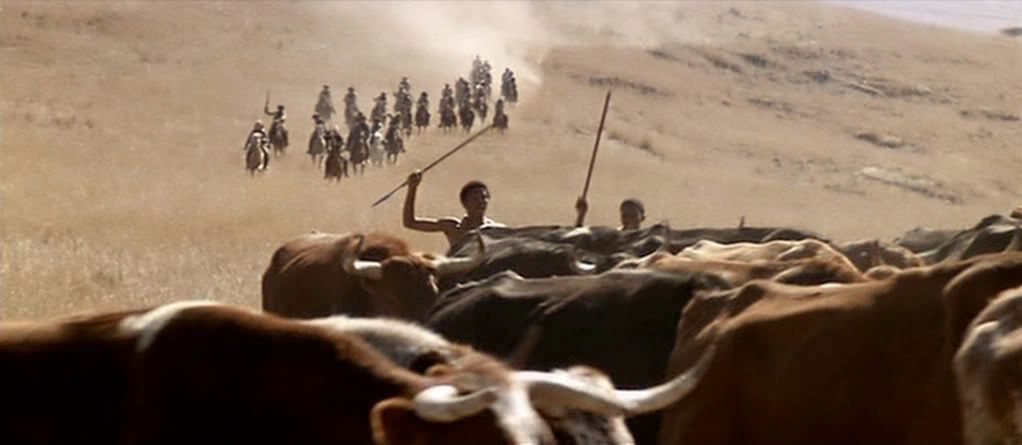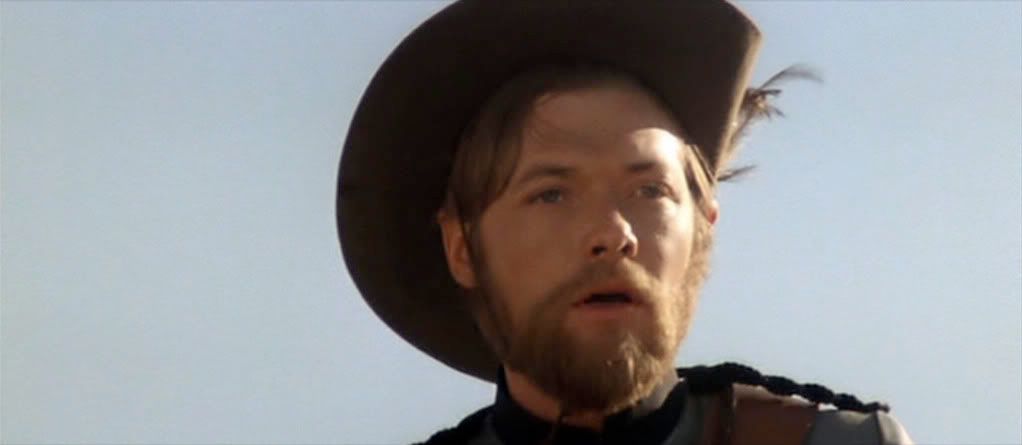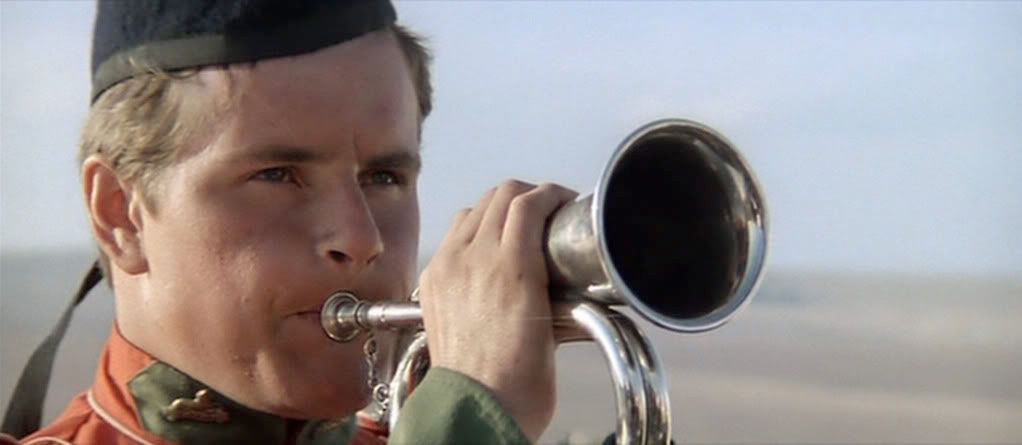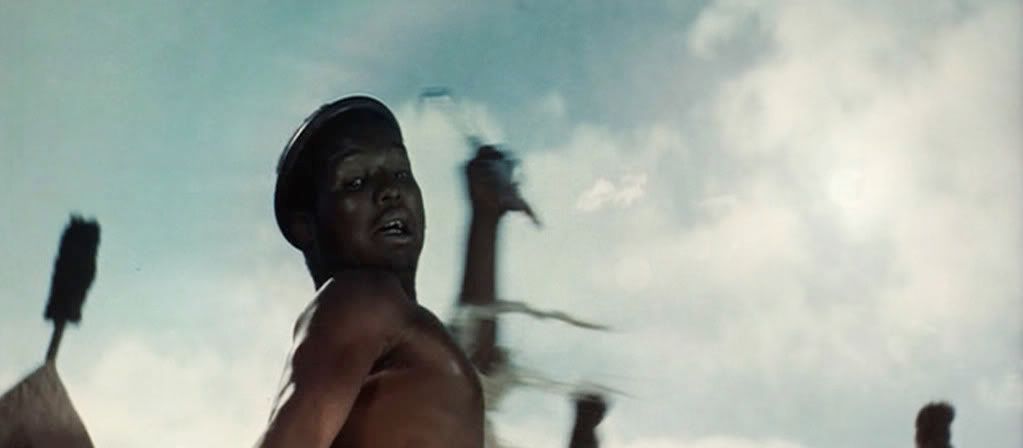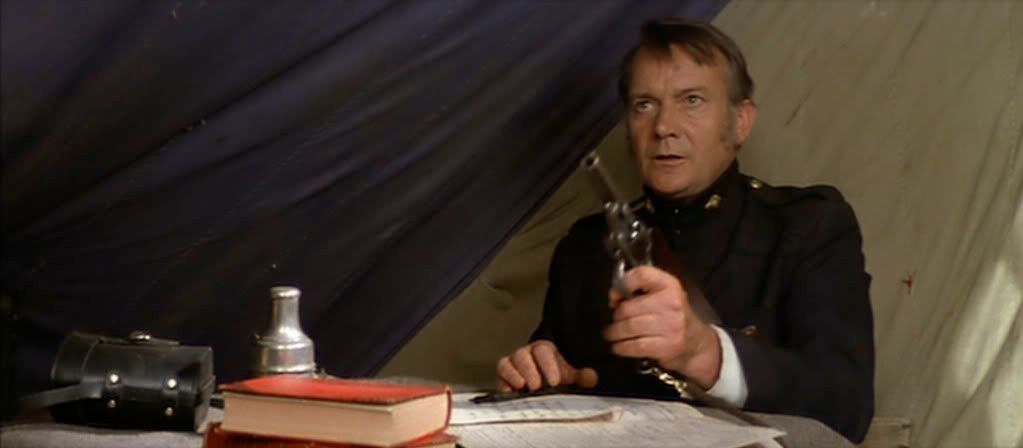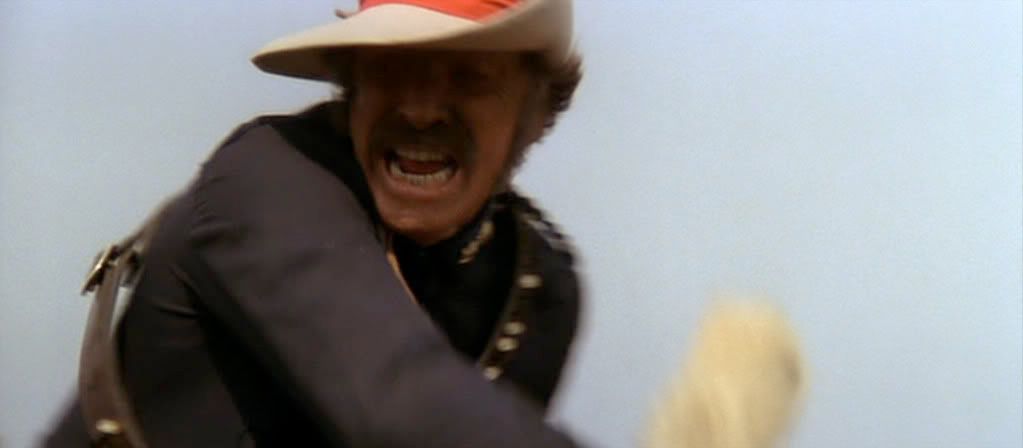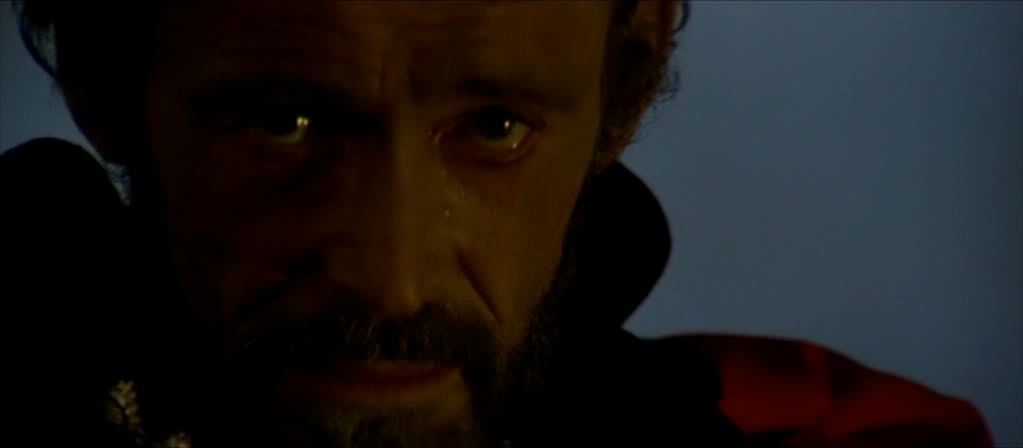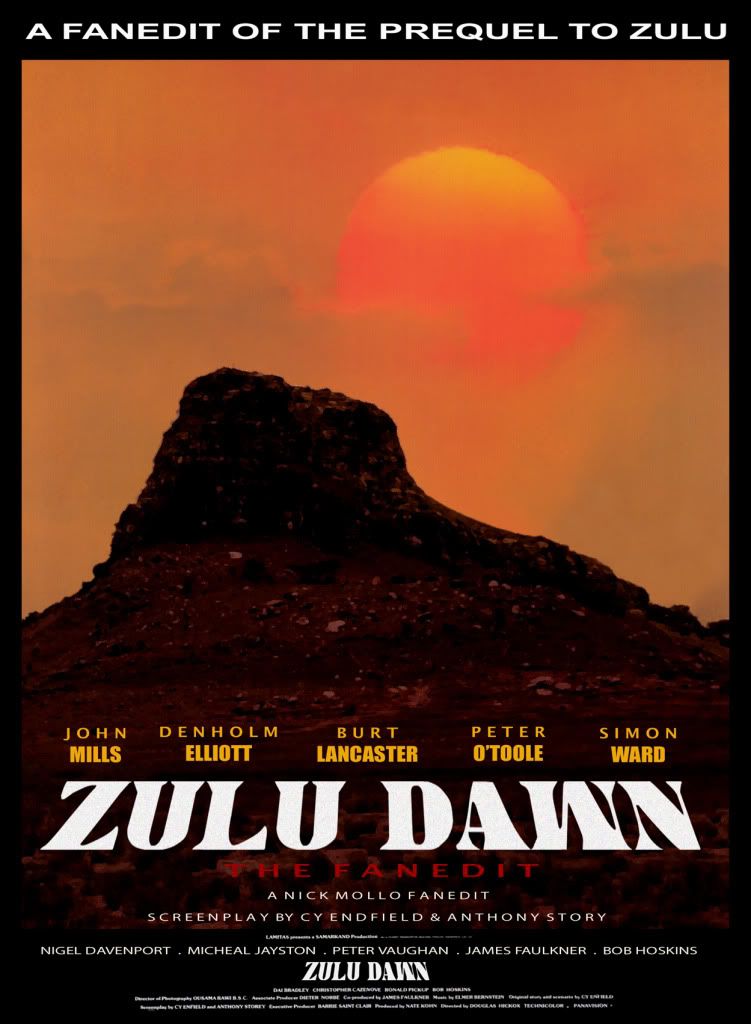
ZULU (1964) is an undisputed classic of the war movie genre. It is a movie with a difference because the Zulus are portrayed as brave and disciplined, more than a match for their British enemy. The famous musical score by John Barry confirms this respect for the Zulu by having the heroic theme play equally over opposing forces.
Zulu Dawn (1979) is a sprawling affair with considerably less focus on character. The Zulus have regressed to a more primitive and savage enemy. Their culture is hardly explored and the score by Elmer Bernstein establishes the Hollywood cliché generally reserved for the Red Indian.
Zulu Dawn could almost be labeled as Victorian propaganda. The featured British soldiers and officers all meet their fate with stoic heroism. An example of this fantasy is the sequence concerning the saving of the Queen's colours in the midst of spectacular chaos.
So Zulu Dawn has it faults and while it may satisfy some, it disappoints in a fruitless attempt to capture the glory of its predecessor.
So why a FanEdit of Zulu Dawn?
Certain moments in the film always irritate, from O'Toole inability to ride a horse to the use of Martini-Henry carbines by soldiers of the line. The progress of the battle is also incorrect. A missed opportunity was the omission of the most dramatic moment of the battle, the solar eclipse, where men found themselves fighting each other in chilling darkness.
These and many other reasons prompted a desire to create a FanEdit of Zulu Dawn.
Here is a preview trailer for Zulu Dawn: The FanEdit
1. The 24th Regiment of Foot was armed with the powerful and deadly Martini-Henry rifle. In Zulu Dawn there seems to have been a problem finding practical rifles, so the British infantry are seen to use the carbine version, which is obviously shorter. Also badly made rifle mock-ups are often seen either broken or badly painted. This FanEdit attempts to limiting these obvious errors.
2. The progress of the battle itself is incorrect with the Zulus stopping their advance for no particular reason to stand in open country to bang their shields and be shot at. The momentum of the Zulu attack was only held at bay for a short time due to the hellish hail of bullets from the center British ranks. The Zulus took cover but continued their frontal assault as firing began to weaken. With a FanEdit it is hoped this can be corrected.
3. Remove the reference to the invasion of Zululand being "the final solution to the Zulu problem!" This a direct reference to the Wannsee Conference where Reinhard Heydrich put into action the "Final solution to the Jewish question" and bears no relation to the fate of the Zulu people.
4. Lose some references to foreknowledge. Often in war films characters seem to have foreknowledge of unseen events. This happens a few times in Zulu Dawn as is the case with the representative of the press (Ronald Lacey) who seems to know a lot more than he should.
5. Increase the intensity of the battle. Increase the impression that the Zulu army is huge as they often they appear underwhelming in the original.
6. Add a Solar eclipse towards the end of the battle.
7. Stay at Isandlwana once the battle begins without repeated trips to monitor Chelmsford's uneventful progress.
8. This leads to the portrayal of Lord Chelmsford by Peter O'Toole. The screenplay and O'Toole's performance make Chelmsford into an out and out villain. It is true that Chelmsford invaded Zululand without authorization from the British Government so for dramatic purposes his villainy is easy to construct but I would like to remove some of his more obvious villainous traits. This can be done by removing the odd line and most of his scenes after he leaves the camp at Isandlwana.
9. Elmer Bernstein is a great composer and conductor but his score for Zulu Dawn is frenetic and regressive. I would like to remove as much of it as possible. This means a lot of audio replacement as the DVD audio track is split mono, meaning the dialogue and music are heavily mixed together.
10. Adding some music by John Barry. NOT the famous theme from his Zulu score because it is so emblematic of the 1964 film but instead use music from his lesser known film scores and studio recordings such as The Beyondness of Things (1999), which is not a film score.
11. Sound Design: Whole sections need new sound design. Also some recordings of an authentic Martini-Henry Rifle firing in different locations have been made. The generic Hollywood western rifle sounds will be replaced with enhanced Martini-Henry rifle audio.
12. I would also like to experiment with re-colouring the film with the intention making the over-all colour of the movie less orange.
13. Although a Zulu dance was filmed for Zulu Dawn, it gets very short thrift during the opening credits before there is a cut to the slaughter of a cow. This has always been a major disappointment, so an important intention of this FanEdit is to create a new opening sequence that shows a Zulu marriage ceremony dance.

